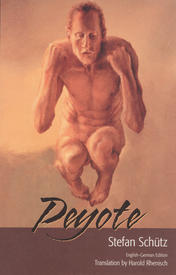Fiction

From the story, “People Like Frank”
The new microwave has a reminder function on it. It’s so you won’t forget that there is something in it, which we used to do all the time with the old one. You’d open it in the morning to find yesterday’s cup of coffee, a cold half-baked spud or the like. Frank calls it the “senile setting” and the beeping drives him crazy. And it makes him angry that he needs it.
He’ll start off a project, like replacing the bathroom fan, and then he ends up over across the other side of the house cleaning the rust off the porch light, every counter and table in between full of tools and bits. And then he gets mad that he forgot what he was doing and stomps back in to finish installing the fan. In the meantime, he’s forgotten that he was warming up his second cup of coffee. Now the new microwave beeps at him, and he gets mad again. I’m getting used to him getting distracted, but I still hate the mess.
In the old days, our apartment was tiny and I had to clean up after him if I wanted to make supper or have a place to fold the wash. Over the years, he got better about putting things away. Now when I come across a hammer or other tool left out in the rain or the rake leaning up against the fence, looking lonely and forgotten, I know it’s not on purpose; it’s that Frank doesn’t remember what he was doing with it. We usually come across these things in spring, when the snow melts. I’ve stopped blaming him.
I think he has a bit more pride or maybe it’s shame, and he’ll come back and start to tidy up until he gets mad again and starts throwing things when he can’t fit them back where he got them from. He’s like that, flashy temper. There are lots of reasons why people get angry sometimes, and I think he’s made up of all the reasons. He just can’t help himself—it’s such a habit. I’m used to it and I don’t much like it, but I put up with it. I can’t change him.
It didn’t use to be this way. Frank has always been the kindest person. If you needed help moving, you didn’t even have to ask, he would offer up and just be there with his truck, a pizza and a six-pack of beer. Back in the day, I would find him underneath the neighbor’s car changing the oil, driving somebody across town to an appointment, or professing to me in the quiet and dark dawn that he wanted to be a better man. He would do anything for anybody, even people he didn’t know. If you ask any of our friends, they would say he is über thoughtful and helpful. People like Frank. He is a small man with a big heart. I used to call him my love extremist.
Back in those days, nobody ever saw a temper, and I don’t think he was angry very often, and if he was, it was only in private. Like when he would read of an injustice in the news and stomp around for a while trying to help find a solution, then send off a fiery letter to the editor offering up some suggestions. It was a gentle kind of anger, I wouldn’t even call it anger; it was just passion and I was never afraid of it.
That is the Frank I fell in love with. And even though I know something about genetics, and even though I knew his parents and could see the life he came from, especially when they both fell into dementia themselves, I never imagined it would happen to him. Perhaps I was just naive or didn’t want to know. When you are first in love, the last thing you think of is the bad or tragic ending that could be yours. It’s hard to see past your next date, lovemaking session or first child, let alone thirty or forty years down the road when the change that has maybe started to happen on and off finally gets itself together enough to turn the gentle, funny and talented man that you loved into a monster that you now can’t stand. Your own balance slides back and forth between compassion and fear, and the blankets bunch up between you in the bed like a new third person whose name is Apathy, because I’ve stopped caring altogether. It’s hard enough just keeping up with him most days, never mind feeling regret. I can’t—there’s just no time in my day.
Sometimes Hate is his second name, like this morning when it slapped me in the face.
The dog’s shit smelled like a hundred dead rotting things, and the putrid after-scent woke me out of a dead sleep and I felt exhausted at the thought of having to clean it up. The dog woke up ill, Frank said, but wouldn’t tell me why. He was afraid to—probably the dog ate something on the trail or on their final toilet walk of the night. Sometimes he gives them big chunks of cheese without me knowing because he’s afraid to lose their love, especially when they curl up with me at night—I can feel they are tense around him. But for the mess, Frank just let me deal with it, instead of possibly making himself feel worse because he can’t focus enough. He gets distracted, and I don’t blame him, it’s not him, it’s the disease and that realization makes me have all the feelings.
It’s hard being a parent to your spouse, having to remind them when to eat or shave or when to take their medications or vitamins, when to put on clean clothes or even take a shower. It’s all hard because you never see it coming. Frank and I were so in love and had our routines down, there were no cracks in our mutual armor, “us against the world” for so many decades, thousands of miles or happy road trips, writing songs and reciting poetry over breakfast, such a solid and complete life that you don’t see the cracks when they start to form. The little niggly things that at first you write off to allergies or a cold, or a sleepless night. A surprise fight that blows up out of nowhere like a spring storm or a pair of socks shoved in the cutlery drawer. Misplaced reading glasses that you find months later in the freezer. Then you start to wonder what’s going on. If I would have known then what I know now . . . I’d seen both of his parents with Alzheimer’s, why didn’t I anticipate it? After years of watching parents and our friends come to long, sad endings with various dementias, why didn’t I see? I berated myself for some time but I think the answer is that I didn’t want to see it, my denial was so strong, and I was just tired, tired to think that old life was still following us around, but this time without an escape, because it was in our own house and our own bed and not some miles away in another town, somebody else’s problem to deal with. I was just too tired to see it.

From Chapter One
On the morning of Sloane Sawyer’s thirtieth birthday, Roma gifted her daughter a fitness tracker.
“It’s as addictive as smoking cigarettes, only it’s good for you!” Roma boasted, rolling up her sleeve to show off her own.
Who gives their daughter a fitness tracker? A mother who thinks their daughter is fat.
Roma had been waiting in her car in the driveway for Sloane and Jason to wake up. She would show up like that, driving forty-five minutes from Tippett Valley to Torren Hills without warning. She claimed that if she called first, Sloane would tell her it wasn’t a good time. She was probably right.
“This one’s for Jason,” she said. From her purse, she removed a second wrapped gift—the same shape and size as Sloane’s.
It’s my birthday—why is anyone else getting a gift?
Roma set the box on the counter. “Something the two of you can do together,” she said.
“You mean, like you and Dad?”
It was a mean thing to say. That Roma and Edward would soon be married thirty-two years still amazed her.
“Now that your father’s retired, I see enough of him at home,” said Roma. “Try it on.”
The fitness tracker was the wrong size for Sloane’s wrist. Small. She couldn’t even get the buckle to meet the last hole. To avoid an argument, she accepted the gift receipt and promised to exchange the band for a larger size.
“Mom, I’ve got to get ready for work.”
Roma sat at the kitchen table. “There’s one more thing.”
Sloane rolled her eyes. “What?”
“I’m going to China!” Her arms rocketed above her head.
Roma had never been anywhere, had never been on a plane, had never crossed a border, and she had chosen China as her first trip. Come September, she would be out of the country for two weeks. She told Sloane she picked China because of a Greg Brown song of the same name. She didn’t care that the lyrics were a metaphor; she was actually going to be in China.
“With Dad?” asked Sloane.
Edward refused to go—not during the NHL pre-season—which was likely the response Roma had expected. Edward was the reason for the trip. Since retiring from the steel plant, he rarely left the house, and the house had always been Roma’s space.
“With Vivian. We’re applying for visas this afternoon. I need a break from your father. He wants to tell me everything.”
“Isn’t that a good thing? Couples go to therapy to learn how to be better communicators.”
“He’s over communicating,” Roma complained. “I don’t need to know everything your father’s thinking. I don’t need to have each of his movements narrated.”
“Narrated? Really, Mom?”
Roma lowered her voice. “‘I’m hungry,’” she said. “‘I’m going to heat up some soup. I’m going to do that now. Just got to get out of this chair. Oh, the floor is cold. Better put on my slippers. I wonder who won the Leafs game last night. Better look that up to see if it affected my Bruins in the standings. Darn, I forgot to plug the phone in last night. Remember the days when phones just stayed plugged in? Fifty-five seconds for the soup. Last time, I heated for a minute and it was five seconds too long—’”
“Okay, I get it.”
“All day, Sloane.”
“Is that why you picked China, to get away as far as possible?”
“I’ve always wanted to go to China.”
“No, you haven’t.”
“How do you know?”
“You’ve never mentioned it before.”
“I don’t tell you everything, Sloane. I’m not your father.”
“Dad doesn’t tell me anything.”
“Lucky you.”
Sloane dropped it. Roma hummed the Greg Brown tune. Sloane tightened the drawstring of her sweatpants and wondered if her own best friend would go on a trip with her.
“I ran into Joe Harrington yesterday,” said Roma. “He was downtown buying glue for his model airplanes. Told me he’s looking for help loading some old wood.”
Sloane’s body tightened. “Their old picket fence?”
“He’s finally clearing out his garage. I gave him Jason’s number. Joe said he’d pay for the help.”
Sloane pushed her glasses into her face. “Jason’s not doing odd jobs anymore.”
“Sloane, it’s the Harringtons.”
“Maybe instead of taking the wood to the dump, they should just put the fence back up.”
“Why are you being so defensive?”
“I’m not.” She was. Sloane backed down.
Around Roma’s wrist, her fitness tracker vibrated, alerting her to move. With exaggerated swinging arms, she began walking laps around the kitchen table.
“Will you check in on your father when I’m away? Make sure he’s scooping out the ashes from the fireplace, emptying the garbage, eating. I don’t want to arrive home to a corpse.”
Sloane groaned. “Mom, he’s an adult.”
“Not a very good one.”
“Can you sit down, please? You’re making me dizzy.”
Roma read the screen on her fitness tracker. “In eighty-four steps,” she said.
Sloane pointed to the band on her mom’s wrist. “What size is yours?”
“Medium.”
“And you thought I was a small?”
“You know I always think of you as my little girl.”
“Mom, I’m thirty.”
“You haven’t grown an inch since thirteen.”
In Grade 8 Sloane had been five foot four inches. She hadn’t grown in height, but her weight had changed by twenty-
five pounds. The last time she had stepped on a scale she weighed in at one hundred sixty-two pounds, seventeen pounds over the ideal weight on the chart pinned to the wall in her doctor’s office.
“How was work yesterday?” Roma asked.
“The worst.”
“Every day can’t be the worst.”
“It can if it is.”
Roma’s face lit up. “Jason!”
Jason Howard walked into the kitchen. His short, spiky hair was wet from a shower and his face clean-shaven. “Hello, Roma,” he said, showing off his dimples.
Roma stopped circling the table. With outstretched arms, she crossed the kitchen floor. “I’ve asked Sloane to check in on Edward when I’m away,” she said, placing her hand on Jason’s arm. “I’m going to be in China for two weeks in September. She’s putting up a fuss about it. Maybe you wouldn’t mind?”
“I wasn’t putting up a fuss,” said Sloane, sounding like a child. “I was merely stating that Dad’s an—”
“I can stop by the house on my way to the plant,” said Jason.
“Oh, thank you!” Roma swatted his shoulder and then kissed his cheek. Her lips lingered. Jason didn’t dodge Roma’s kisses or escape from the room when she visited. Sloane knew how important his mom had been to him; how Roma filled the void Roseanne had left when she passed. “Such a big heart,” Roma said, rubbing Jason’s arm.
Are you flirting with my husband? It briefly occurred to Sloane that Roma might be compensating for her daughter’s shortcomings. And maybe Roma found in Jason what was missing in Edward. Sloane’s dad wasn’t a demonstrative man. He showed his affection for his wife by renovating the house, by purchasing stocks in her name and by not wavering when she came to him with an idea like wanting to go to China with her best friend.
“Sloane?”
“Yes?” Her mind had drifted.
“Great!” Roma beamed. From the doorway, she blew a kiss from her palm. “Happy birthday!” Then just like that, she was gone.
“What did I agree to?”
Jason took Sloane’s hands. “Happy birthday.”
“Jason, what was it?”
He wrapped his arms around her, holding her tightly. She sucked in her belly so that it wasn’t pushing into his.
“You’re worried I’m going to run out there.”
“Maybe.”
When Sloane squirmed free, Jason shot out his arms to block the doorway. She tried to pass and he enfolded his body around hers, playfully clawing at her sides.
“Jason, let me go!” Slapping at his arm, she laughed and snorted. She couldn’t catch her breath.
Finally Jason stopped tickling, and Sloane heard Roma’s car pull out of the driveway. “There,” she said, rotating in her husband’s arms. “Tell me now.”
Jason didn’t let go; he held her close. “Kiss me,” he said.
Sloane leaned back. “I haven’t brushed my teeth.”
“I don’t mind your morning breath.”
She pecked Jason’s cheek.
“Your mom kisses better than that.”
Sloane slapped his chest. “You know she has a crush on you.” She was only half-joking. Does she wish she had a son? “I think you’ve got a crush on her, too,” she added.
“I think we’re just both lonely.”
Disappointed, you mean.
Disappointment and loneliness were similar. By thirty, Jason had planned to be a video-game developer, not be sitting in a crane all day moving coils of steel so he and Sloane could cover their bills. Each summer he was supposed to be repainting the white picket fence around their house. He was meant to be a father.
“Because it’s your birthday,” he said, “I’ll give you a one-up.”
“A what?”
“A do-over. A second chance. A new life.”
Sloane sighed, loudly. “A video game term.”
He closed his eyes and puckered his lips, waiting.








